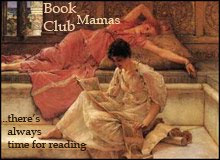
For Christmas this year my daughter got me David Suzuki’s Green Guide. Although it details the catastrophic impact we have on our planet, it wasn’t at all paralyzing. In fact, David Suzuki outlines meaningful actions that we can take to change our relationship to agriculture, transportation, energy use, and politics. I am definitely going to be referring back to various sections to slowly change my awareness and habits. There are so many possibilities, from simple to more challenging. It is empowering. Suzuki also includes references for further research (books, documentaries and websites). Here is one of many lists he suggests:
12 Guiding Principles of Sustainable Consumption
- Remember the big picture. Spend less time worrying about plastic bags and disposable cups and more time thinking about where you live, energy use in your home, how often and how far you drive (and fly), and what you eat.
- Don’t buy stuff that you don’t need. Among the three environmental commandments—reduce, reuse, and recycle—reduce is by far the most important.
- Make food, not waste. Before you buy something, think ahead to when you’ll stop using it. Every product, when you’re finished with it, should be food for either the biological economy (readily biodegradable materials) or the industrial economy (recyclable or reusable raw materials for new products).
- Buy local. The closer to home a product is grown, built, or made, generally the lower transportation costs associated with pollution.
- Go for quality, not quantity. Select durable products and maximize their reuse through regular maintenance and care.
- Support renewable energy. Seek out products and businesses that rely on wind, solar, geothermal, or other renewable sources of power.
- Make healthy choices. Avoid purchasing or using toxic and hazardous products.
- Look for a high proportion of recycled content. To fulfill the promise of recycling requires people to purchase recycled products.
- Demand better options…. The more people vote for environmentally informed candidates, speak up on behalf of innovative green solutions, and push for change, the sooner the shift towards a sustainable future will come about.
Among the many suggestions, there were only a couple things that didn’t vibe with me. I don’t agree with Suzuki’s recommendation to eat highly processed soy products for regular meat substitutes, and I don’t agree that we should use compact fluorescent lights. Here’s an article a friend of mine wrote on CFLs, and another on a more healthful alternative—incandescent lights. David Suzuki is human and has his own perceptual lense. He is a scientist and a modern man. I would prefer more back to basics ideas, but that is my perceptual lense. So despite the fact that I don’t agree with everything he says, I do sense that David Suzuki truly loves the natural world. He has integrity, and I trust him.
Today I signed up for his Nature Challenge. He sends a weekly e-newsletter, suggesting things you can do. Check out his website. If your library doesn’t have his book, request it. And if you just can’t get it, his website is very informative. It is largely addressed to his fellow Canadians, but the principles are universal.
And what’s more universal than time? I appreciate that Suzuki addresses our busy lifestyles. He says, “If you’re time-poor because of work or other obligations, then you’re much more likely to drive than cycle or take transit, more likely to eat fast food or junk food than prepare a healthy meal, and more likely to buy inefficient or potentially toxic products (because you lack the time to do any research). When people are time poor, they have less time to spend on the activities that create happiness, such as socializing with friends, pursuing hobbies, and engaging with their communities.” This, in itself, is revolutionary. And we homeschoolers are leaders in that front. We have time to figure out our relationships with ourselves, each other, the environment, and the spirit.
While I ardently believe in homeschooling as a revolutionary act, I have been pretty loose with my ideals and my homeschooling this year. I want to start working towards health again. So, while I don’t normally have New Year's resolutions, I really need to reassess my life and clarify my intentions. But I felt like the list in my head kept growing and growing. I’m so far from who I want to be! How did this happen?! I was feeling a lot of anxiety as the New Year approached. When I actually wrote my list down, however, it wasn’t so long. And, in fact, it was basically in line with what Suzuki says above, a wish to spend time on activities that create happiness, such as socializing with friends, pursuing hobbies, and engaging with my community.
This is my New Year’s wish to all of you.
 My apologies for the delay in posts. I am spending some time with family right now. I appreciate those of you that read my posts and the friendships that are evolving. I am grateful. Check back in with me; I will be writing again when the time presents itself.
My apologies for the delay in posts. I am spending some time with family right now. I appreciate those of you that read my posts and the friendships that are evolving. I am grateful. Check back in with me; I will be writing again when the time presents itself.





